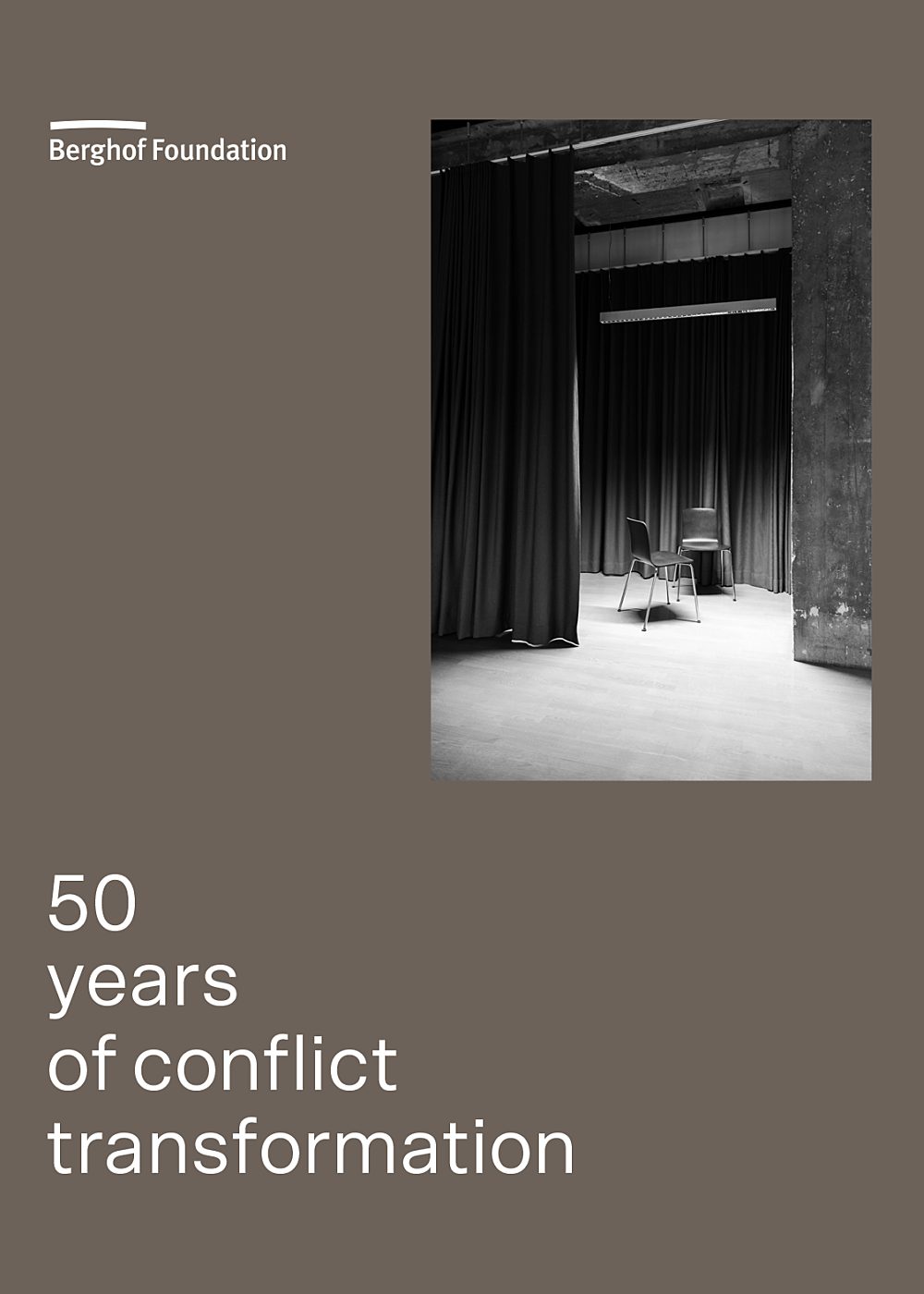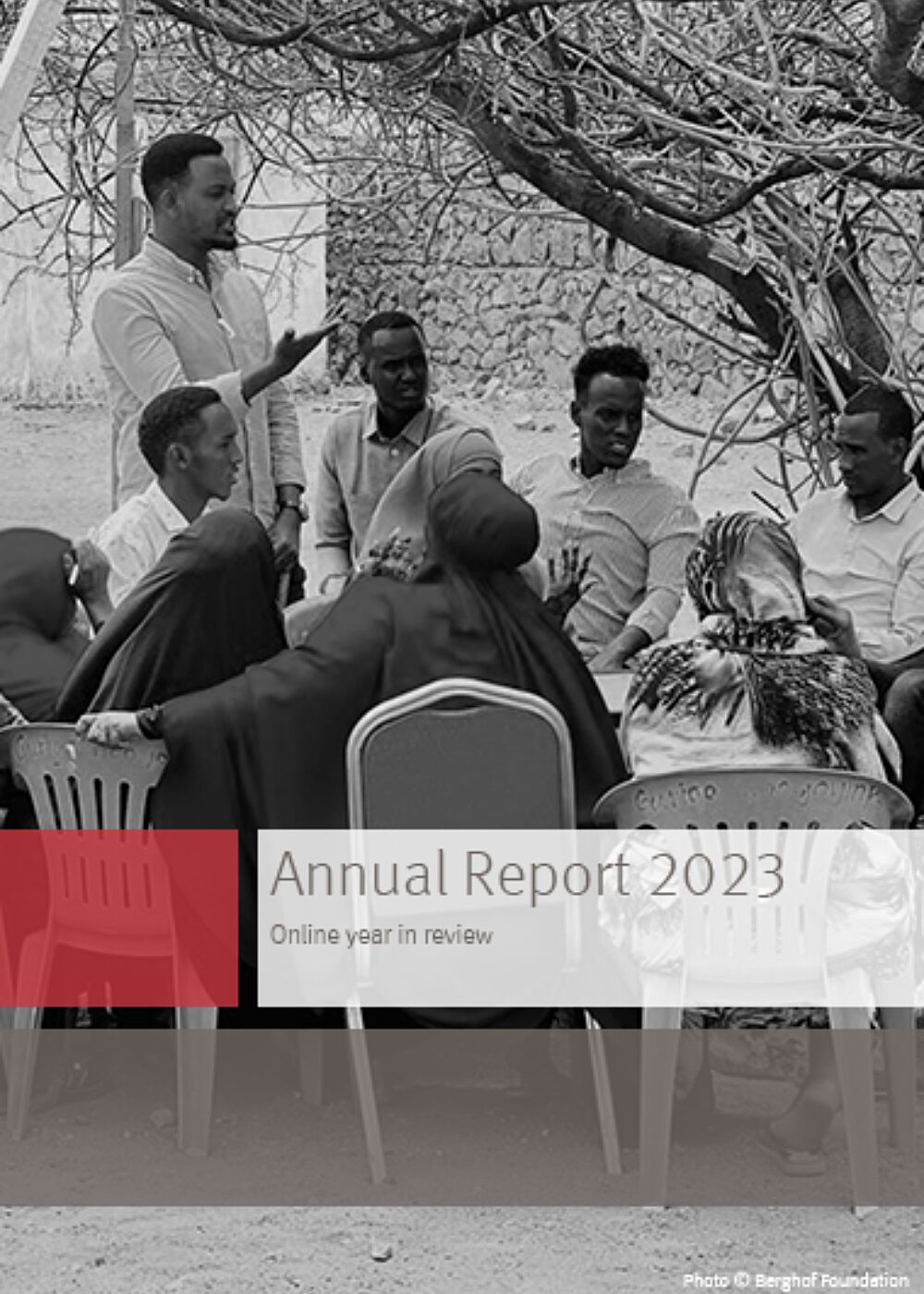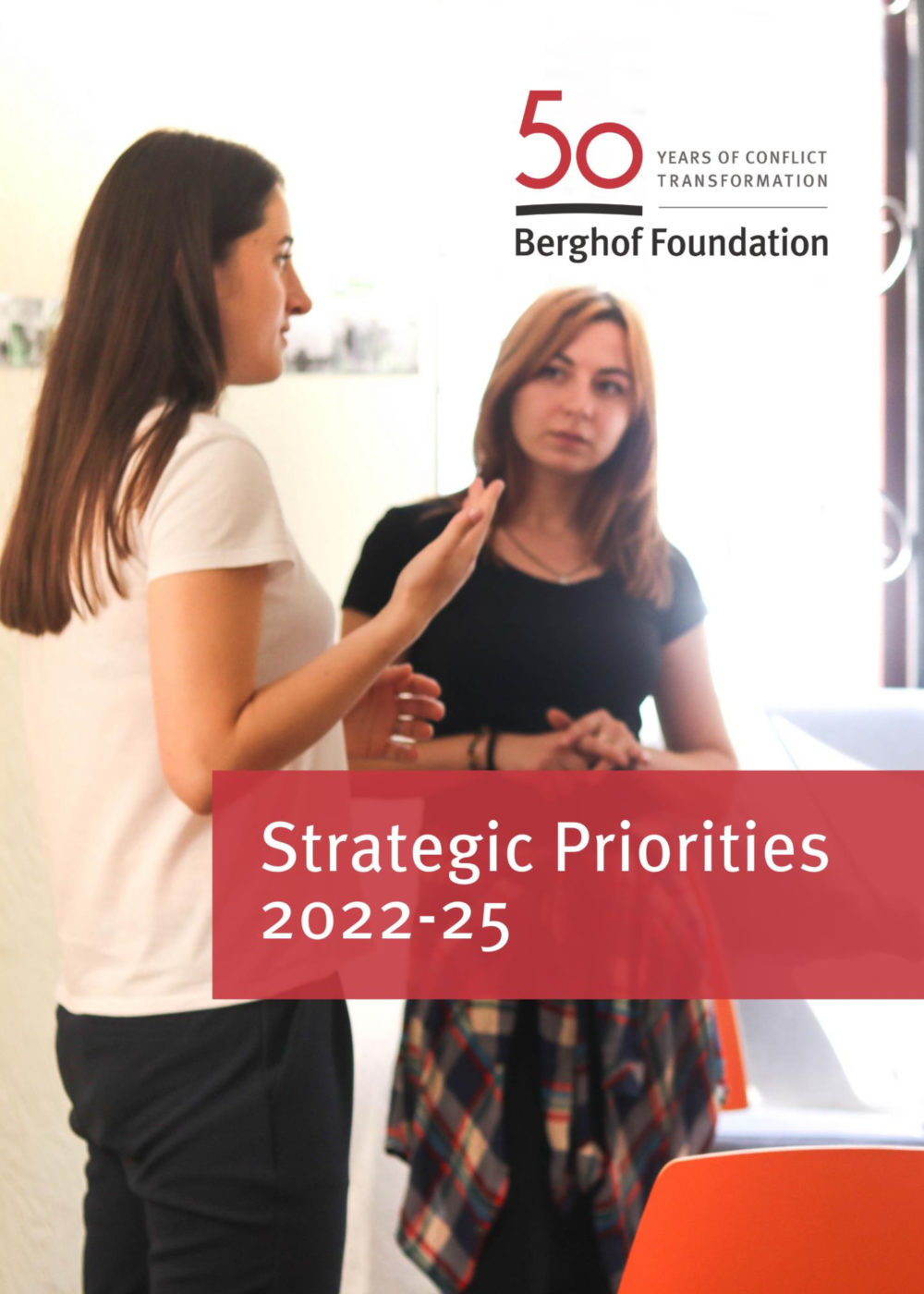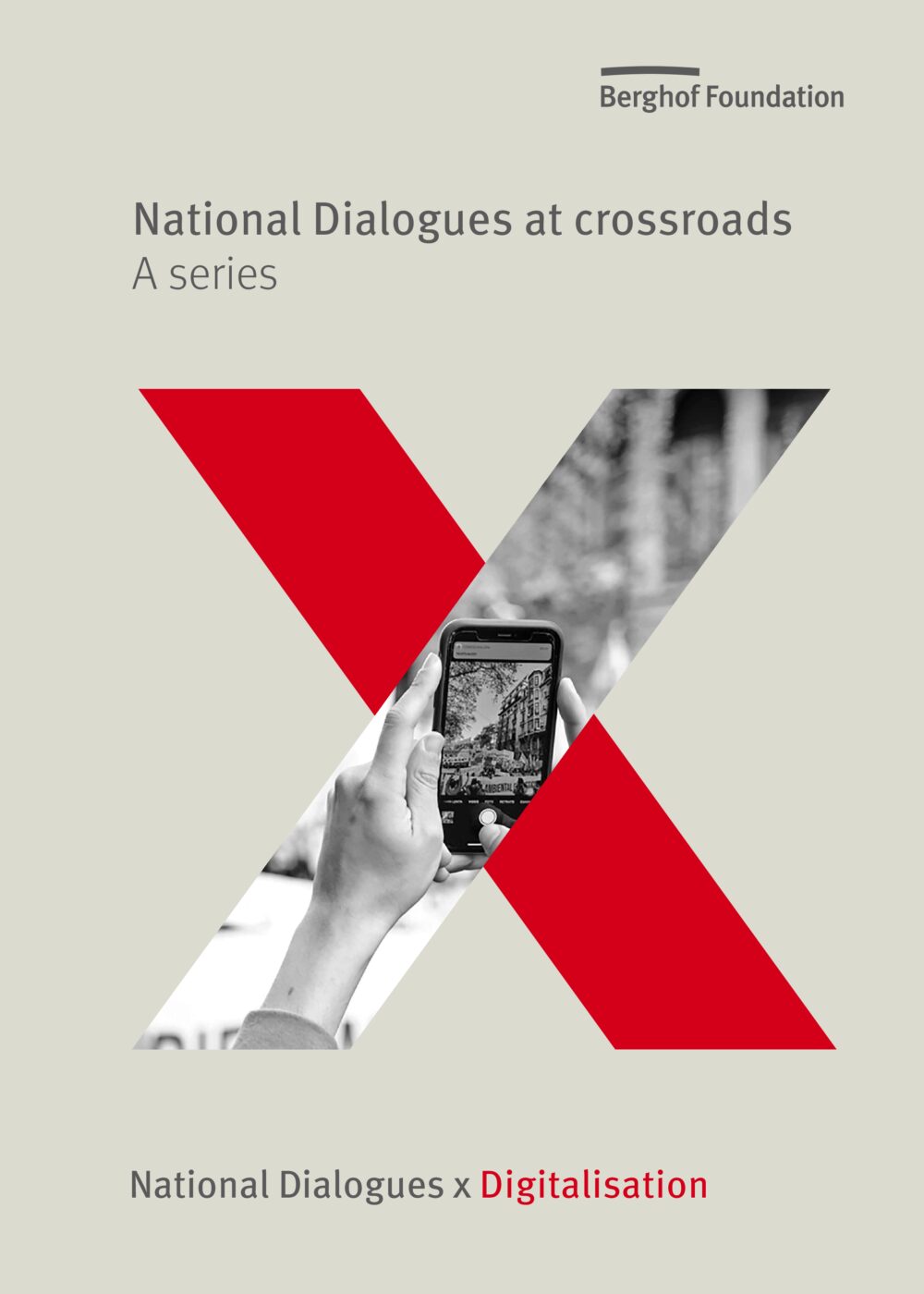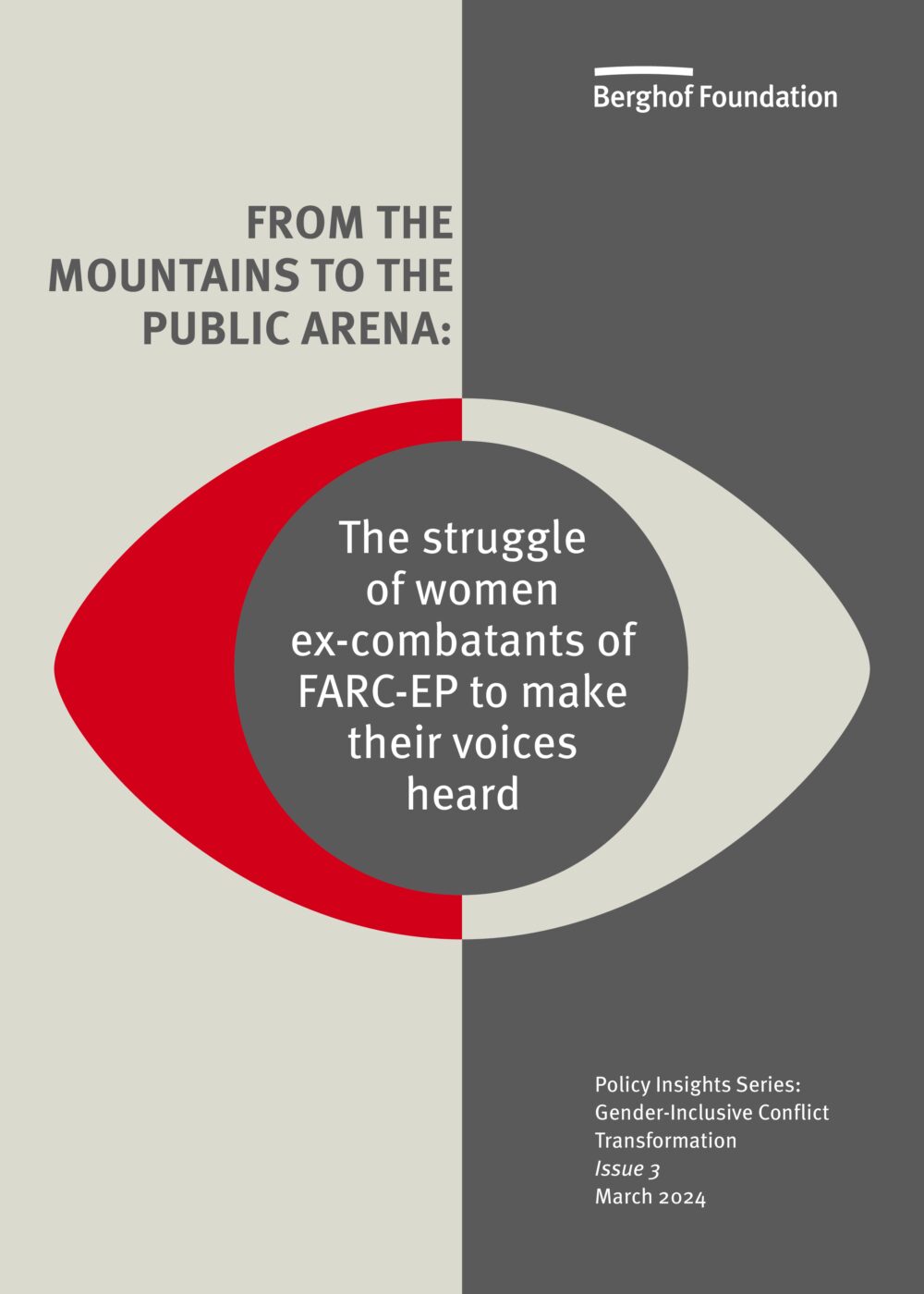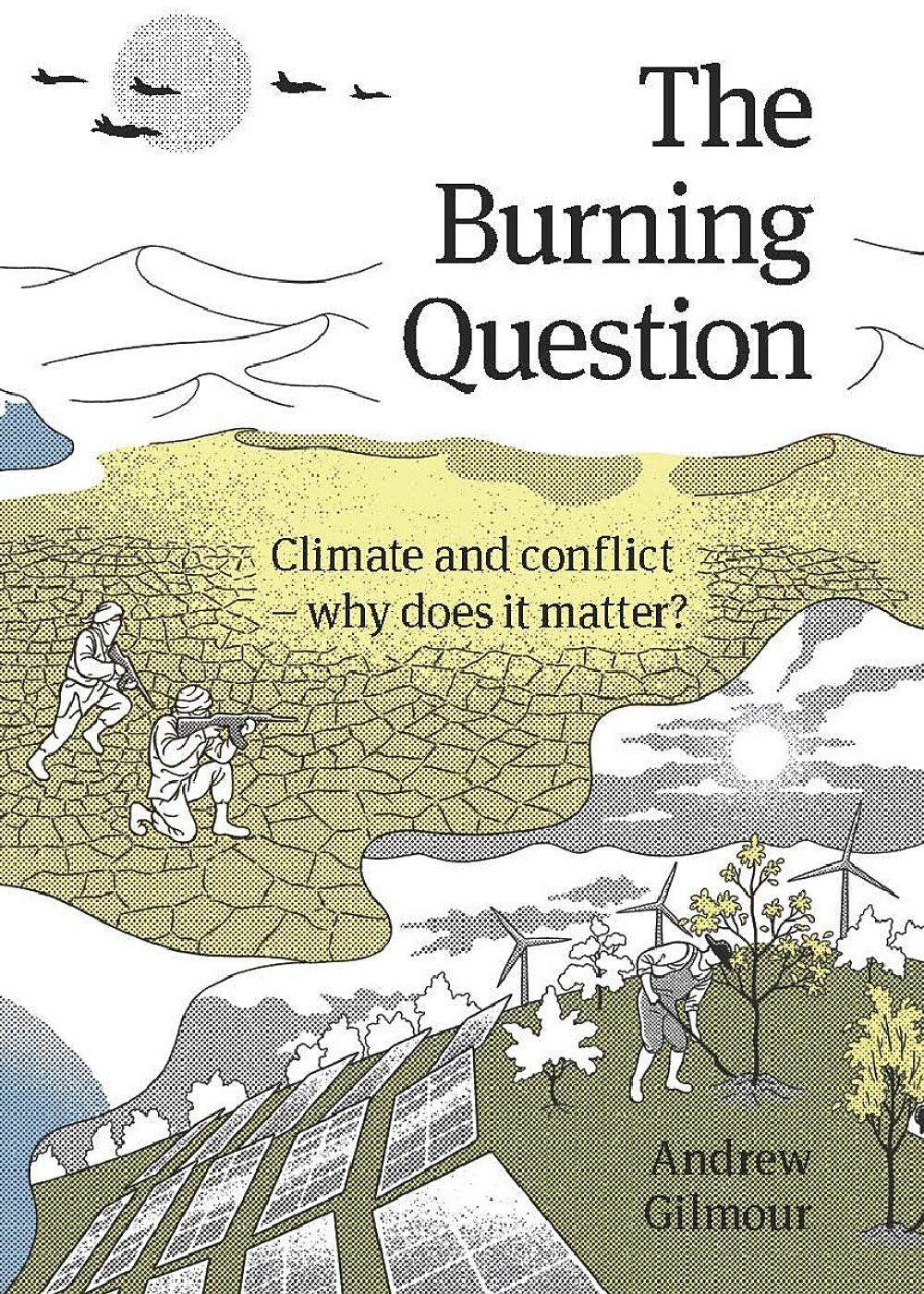Our Library
Explore our publications, from research papers and series to educational materials, covering all aspects of conflict transformation and peace promotion.
Highlights
Collections
-

National Dialogues at crossroads
This series analyses how to best integrate cross-cutting topics in the design of National Dialogues and how ... -
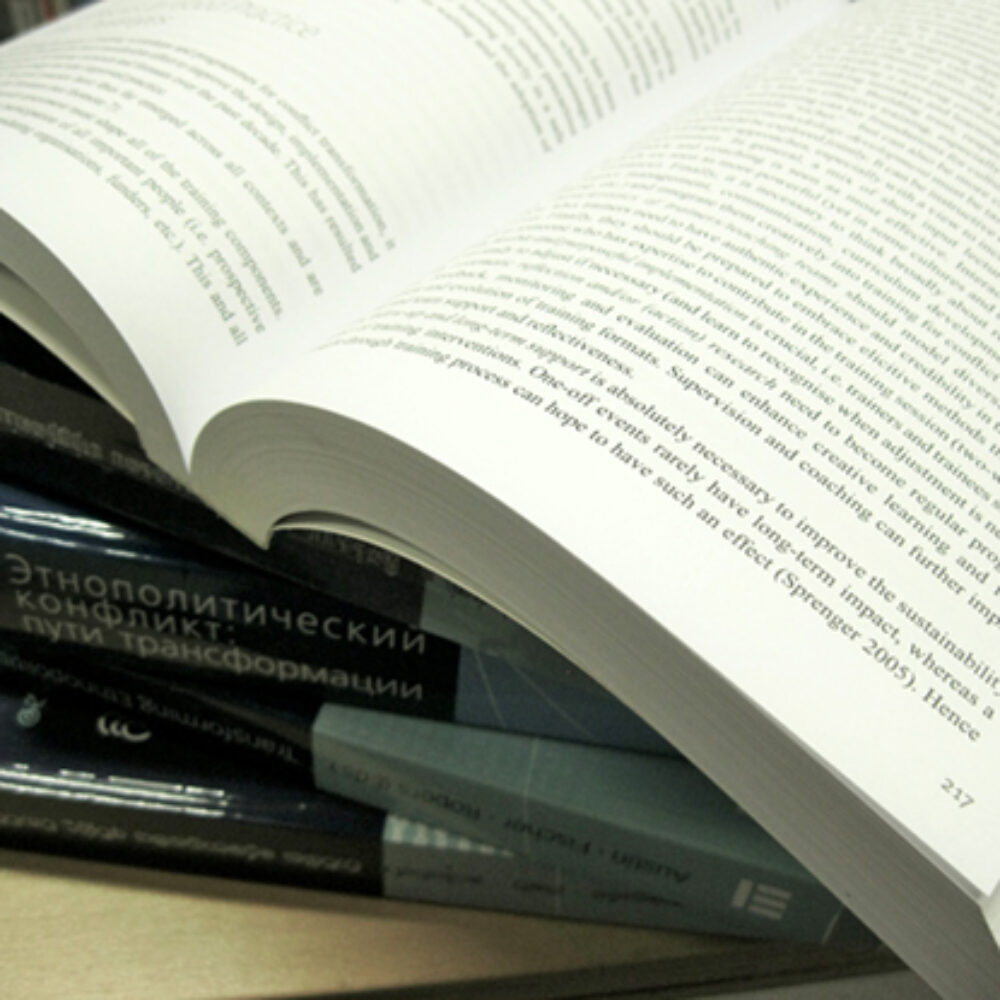
Berghof Handbook for Conflict Transformation
The Berghof Handbook for Conflict Transformation offers a continuously updated online publication platform ... -

Handbook Dialogues
Handbook Dialogues raise key critical issues which are then debated among scholars and practitioners from ... -

Nexus of peacemaking and constitution building
How does peacemaking, particularly that includes mediated peace negotiations, interface with constitution ... -
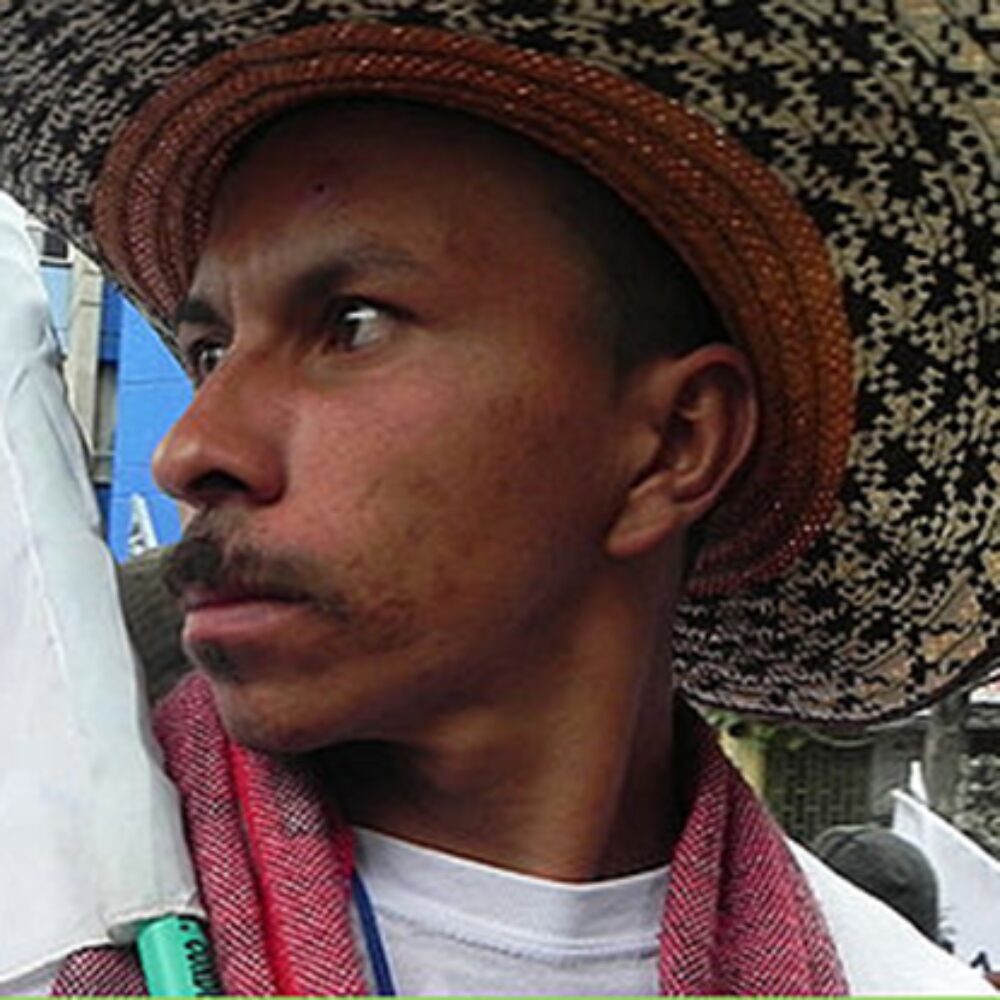
Inclusive Political Settlements
Several background, case study, comparative and policy-related publications were produced within the context ... -

Berghof Transitions Series
The Berghof Transitions Series was initiated in 2008, and originally included case studies produced for a ... -
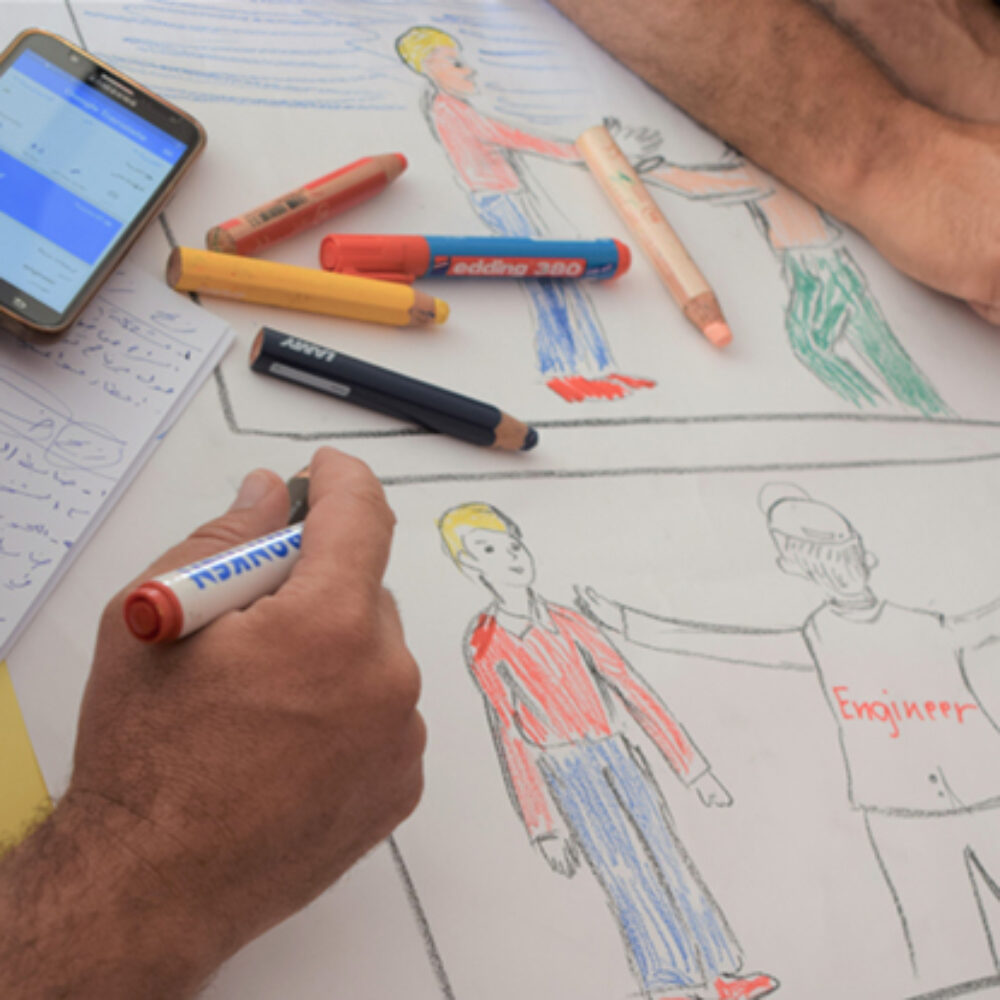
Peace education resources
From classroom materials and curricula, to pedagogical theory, the Berghof Foundation develops resources to ... -

National Dialogue Handbook
Grounded in a series of contemporary case studies, this Handbook aims to contribute to the nascent debate ...
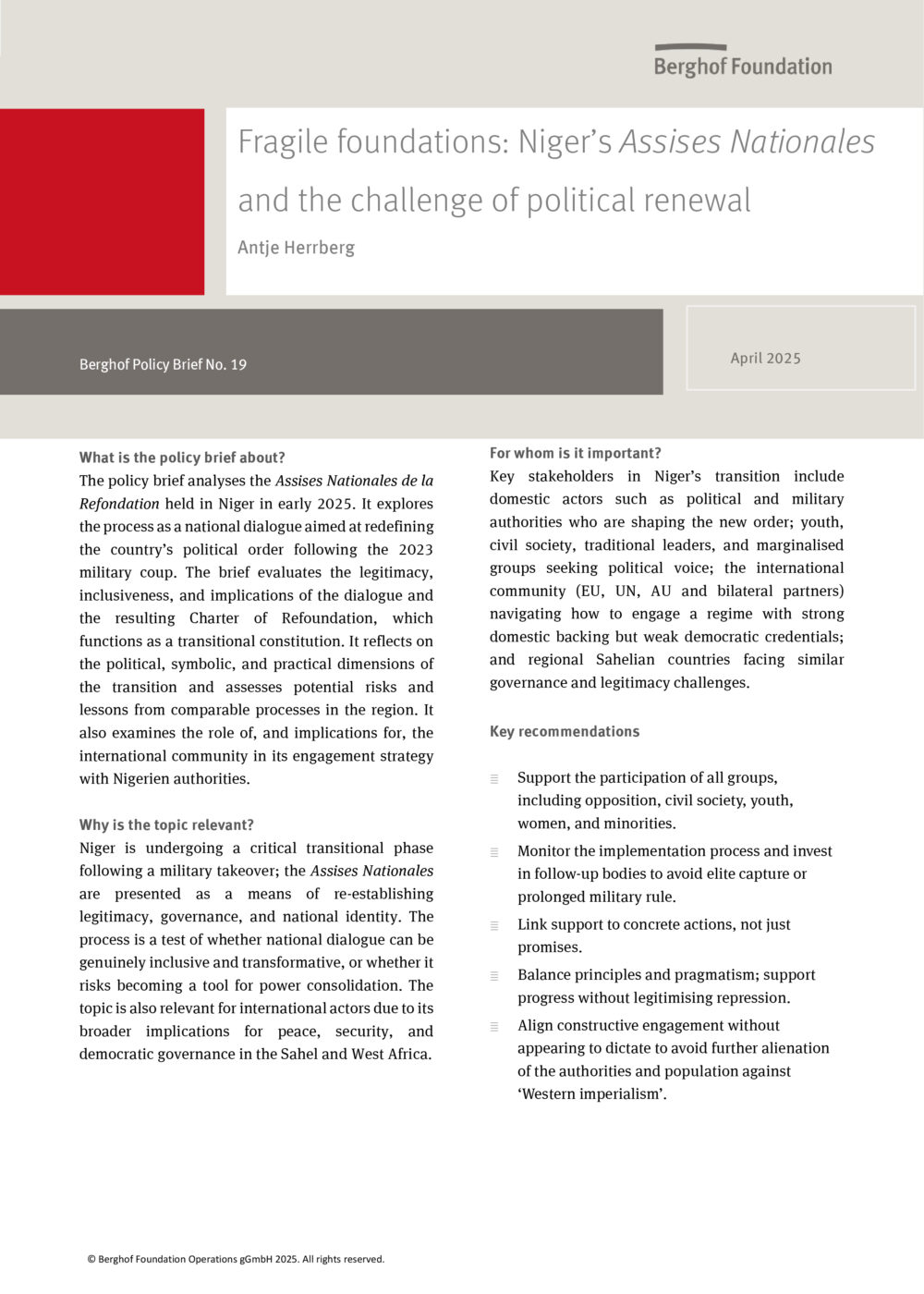
Policy Brief 19: Fragile foundationsNiger's Assises Nationales and the challenge of political renewal
The policy brief analyses the Assises Nationales de la Refondation held in Niger in early 2025. It explores the process as a national dialogue aimed at redefining the country’s political order following the 2023 military coup. The brief evaluates the legitimacy, inclusiveness, and implications of the dialogue and the resulting Charter of Refoundation, which functions as a transitional constitution.
- Year2025
- Author(s)Antje Herrberg
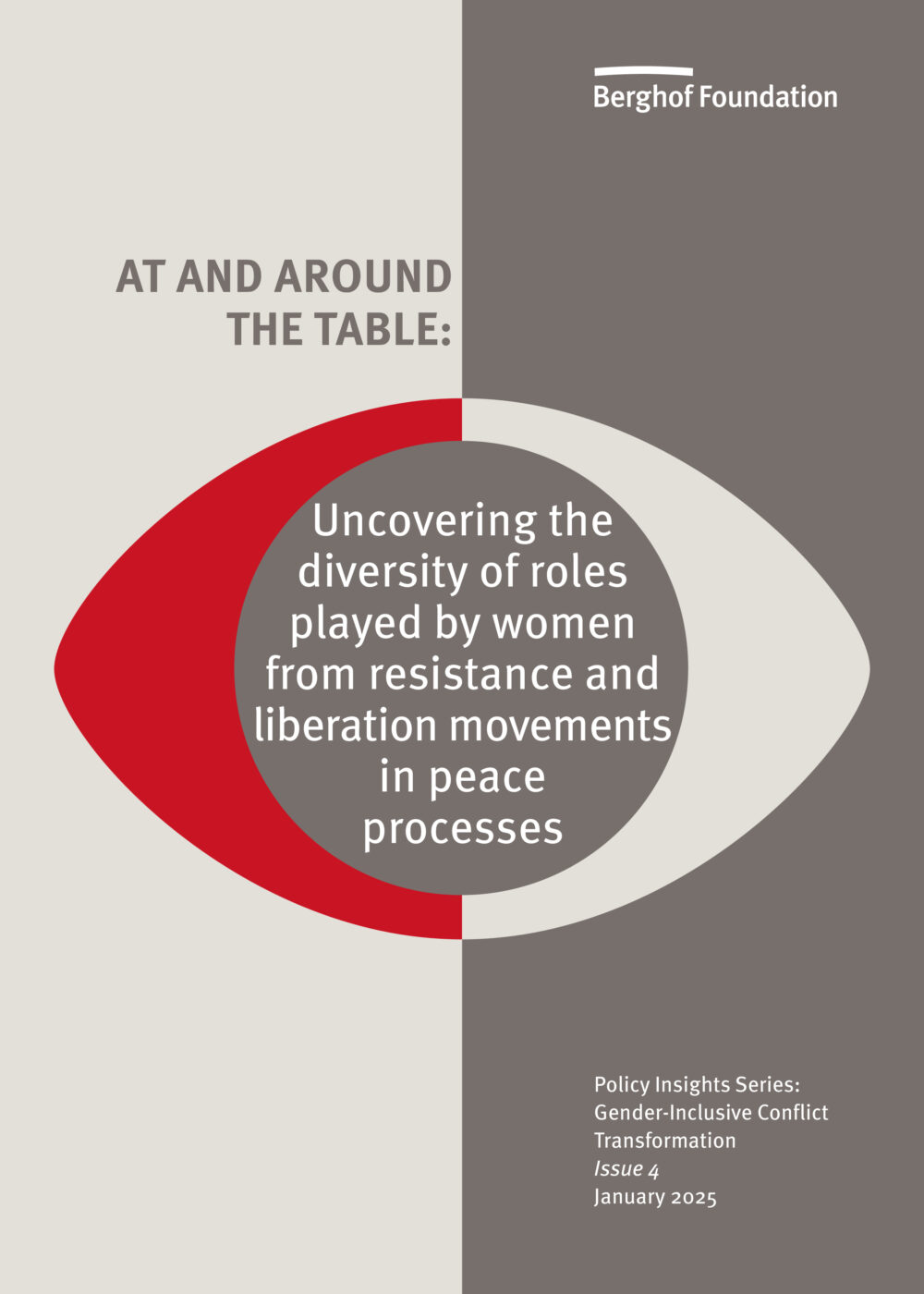
At and around the tableUncovering the diversity of roles played by women from resistance and liberation movements in peace processes
This paper, the fourth in our policy insight series on gender-inclusive conflict transformation, examines the formal and informal roles played by women in and associated with resistance and liberation movements (RLMs) during peace processes. We conducted focus group discussions, interviews and peer-learning workshops with women from South Africa, Northern Ireland, Colombia, the Philippines, Kosovo and other contexts in Latin America, Europe and Southeast Asia who contributed to peace processes either as formal negotiators or informal peace leaders.
- Year2025
- Author(s)Claudia Cruz Almeida, Fee Högner
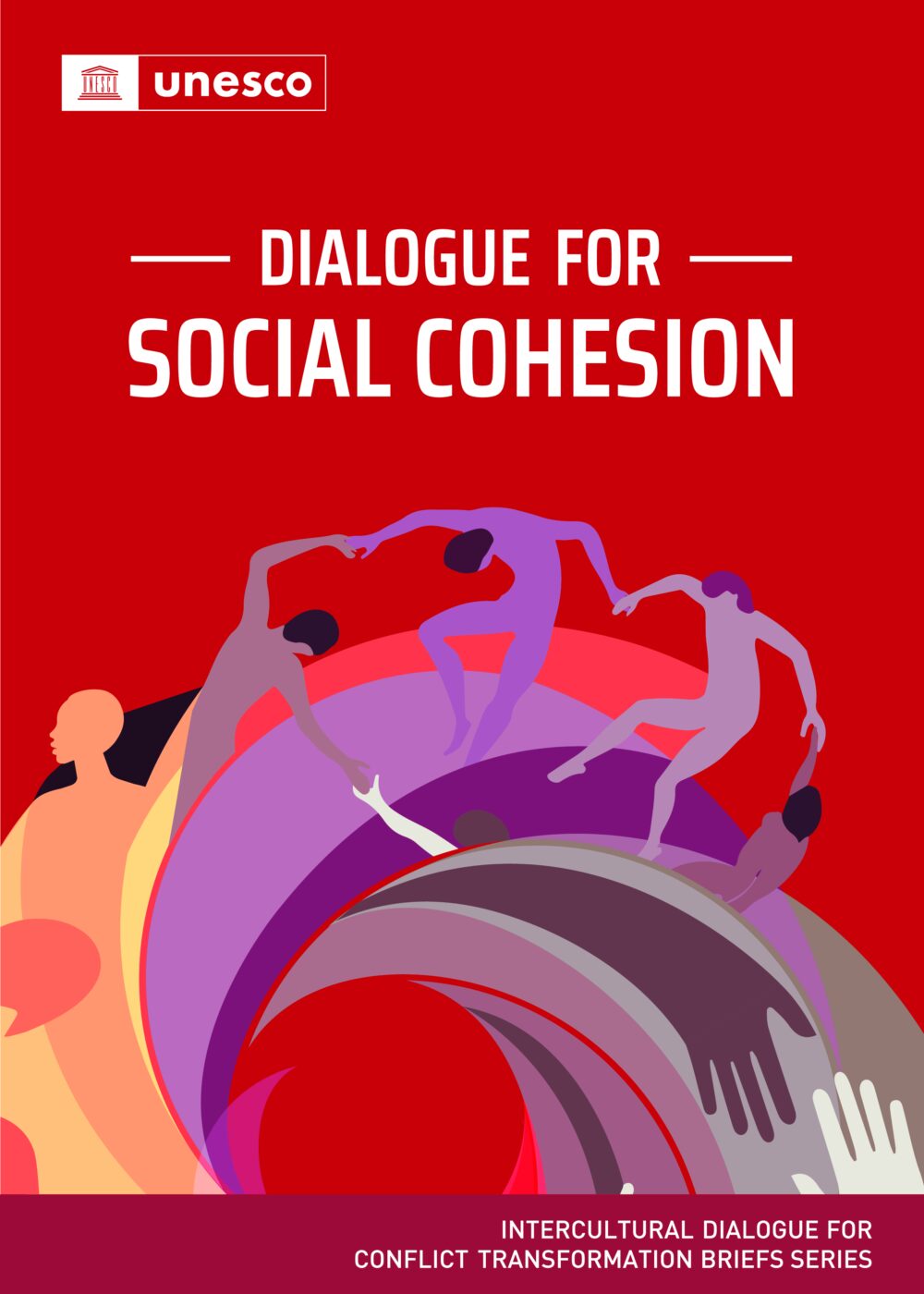
Dialogue for social cohesionIntercultural dialogue for conflict transformation briefs series
At a time when division threatens the fabric of societies, dialogue offers a path forward. The Dialogue for Social Cohesion brief, developed by UNESCO in collaboration with the Berghof Foundation and Search for Common Ground, blends real-world case studies with practical recommendations.
- Year2025
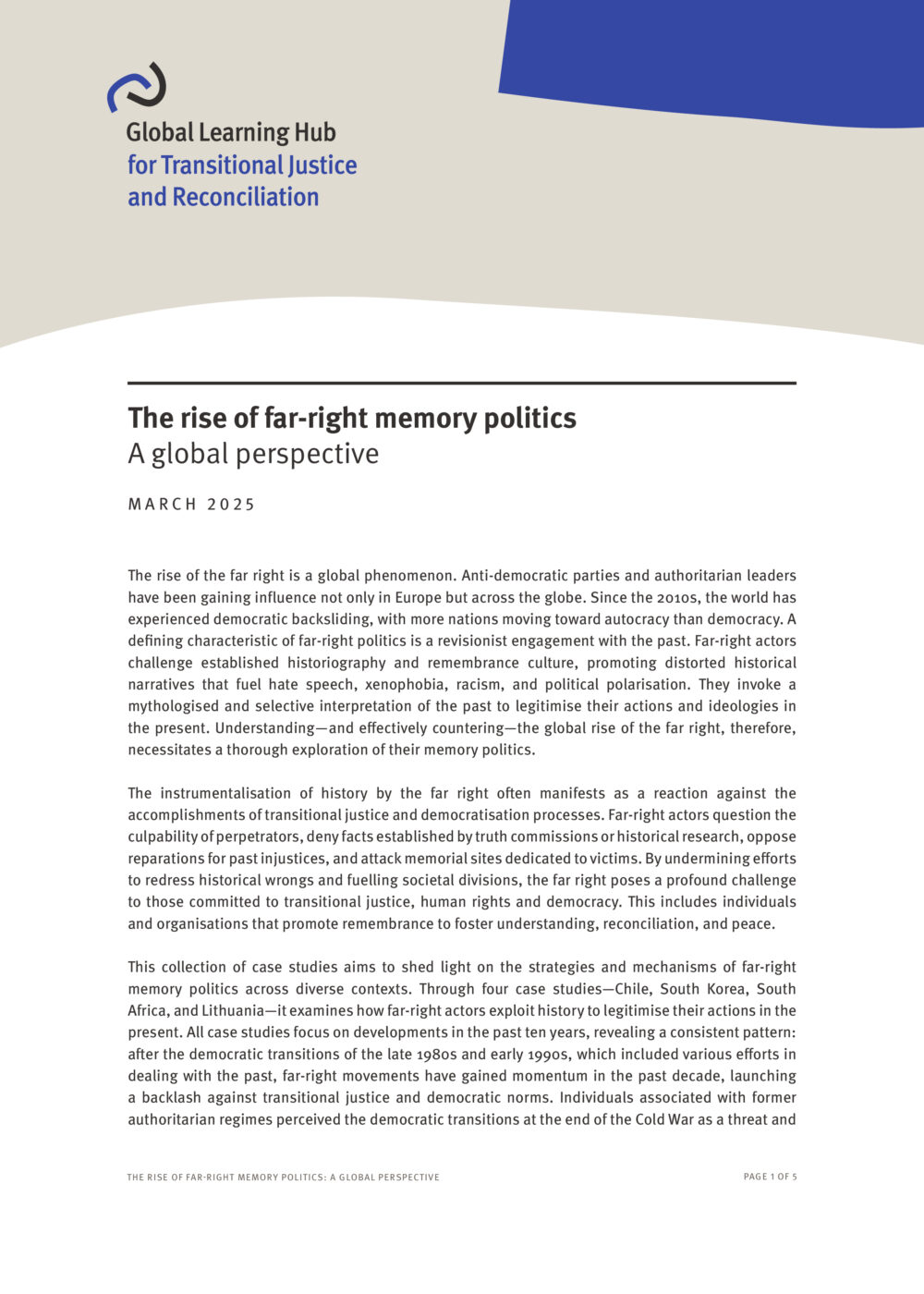
The rise of far-right memory politicsA global perspective
The rise of the far right is a global phenomenon, with anti-democratic parties and authoritarian leaders gaining influence not only in Europe but worldwide. A defining characteristic of far-right politics is a revisionist engagement with the past. By challenging established historiography and remembrance culture, far-right actors promote distorted historical narratives that fuel hate speech, xenophobia, racism, and political polarisation.
- Year2025
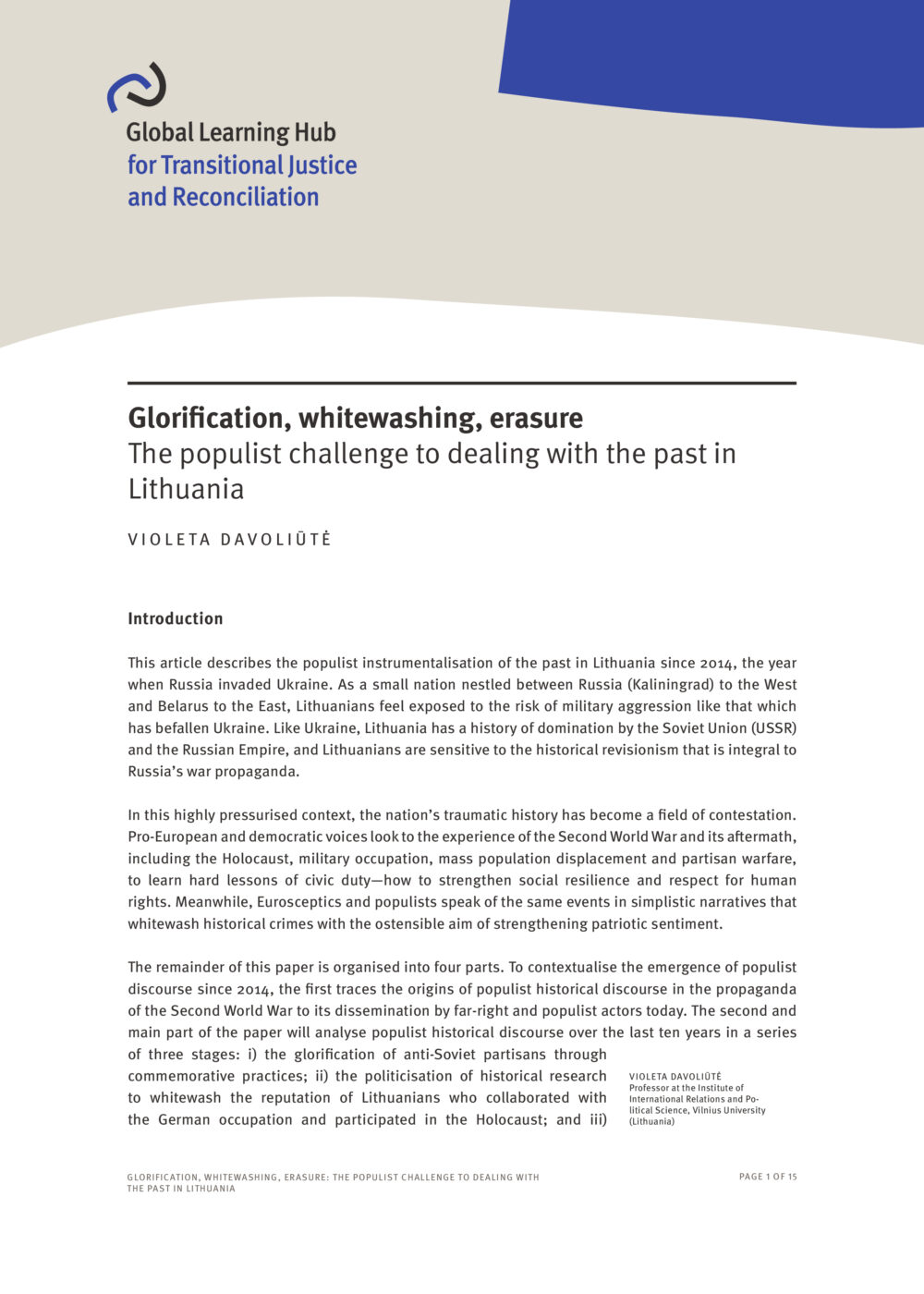
Glorification, whitewashing, erasureThe populist challenge to dealing with the past in Lithuania
This case study explores the populist instrumentalisation of history in Lithuania since 2014, the year Russia invaded Ukraine. The author documents how far-right and populist actors in Lithuania increasingly turn to the experience of the Second World War and its aftermath to propagate simplistic narratives that rely on antisemitic tropes, whitewash historical crimes, and turn victims into villains and perpetrators into victims, with the ostensible aim of strengthening patriotic sentiment.
- Year2025
- Author(s)Violeta Davoliūtė
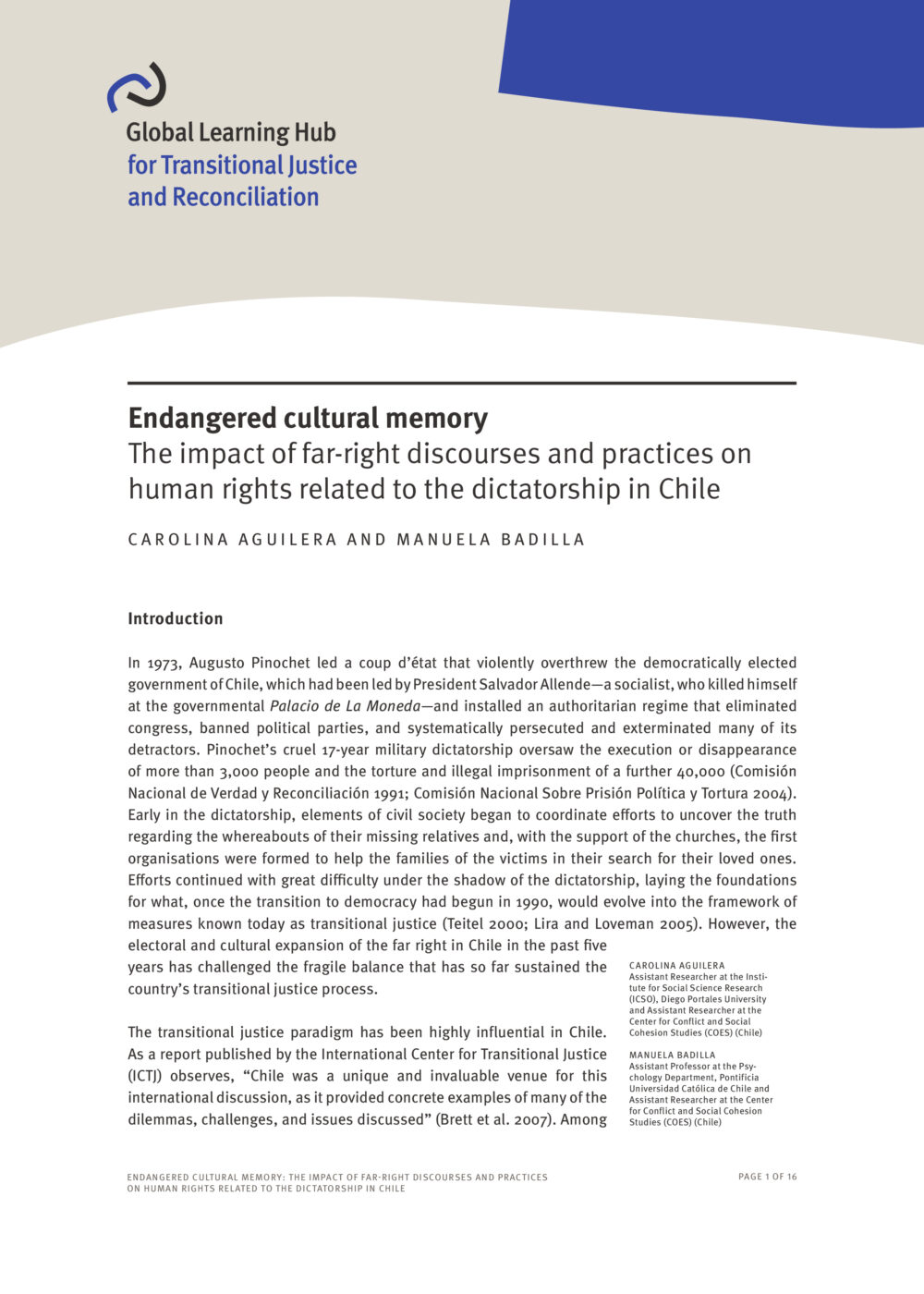
Endangered cultural memoryThe impact of far-right discourses and practices on human rights related to the dictatorship in Chile
In light of the recent rise of the Chilean far right, this case study explores far-right revisionist discourses on the military dictatorship. To do so, the authors analyse both far-right discourses expressed on X (formerly Twitter) as well as discourses and practices expressed in relation to the desecration of human rights memorials. The paper reveals how transitional justice initiatives and even the broader human rights framework are coming under increasing scrutiny in Chile.
- Year2025
- Author(s)Carolina Aguilera, Manuela Badilla
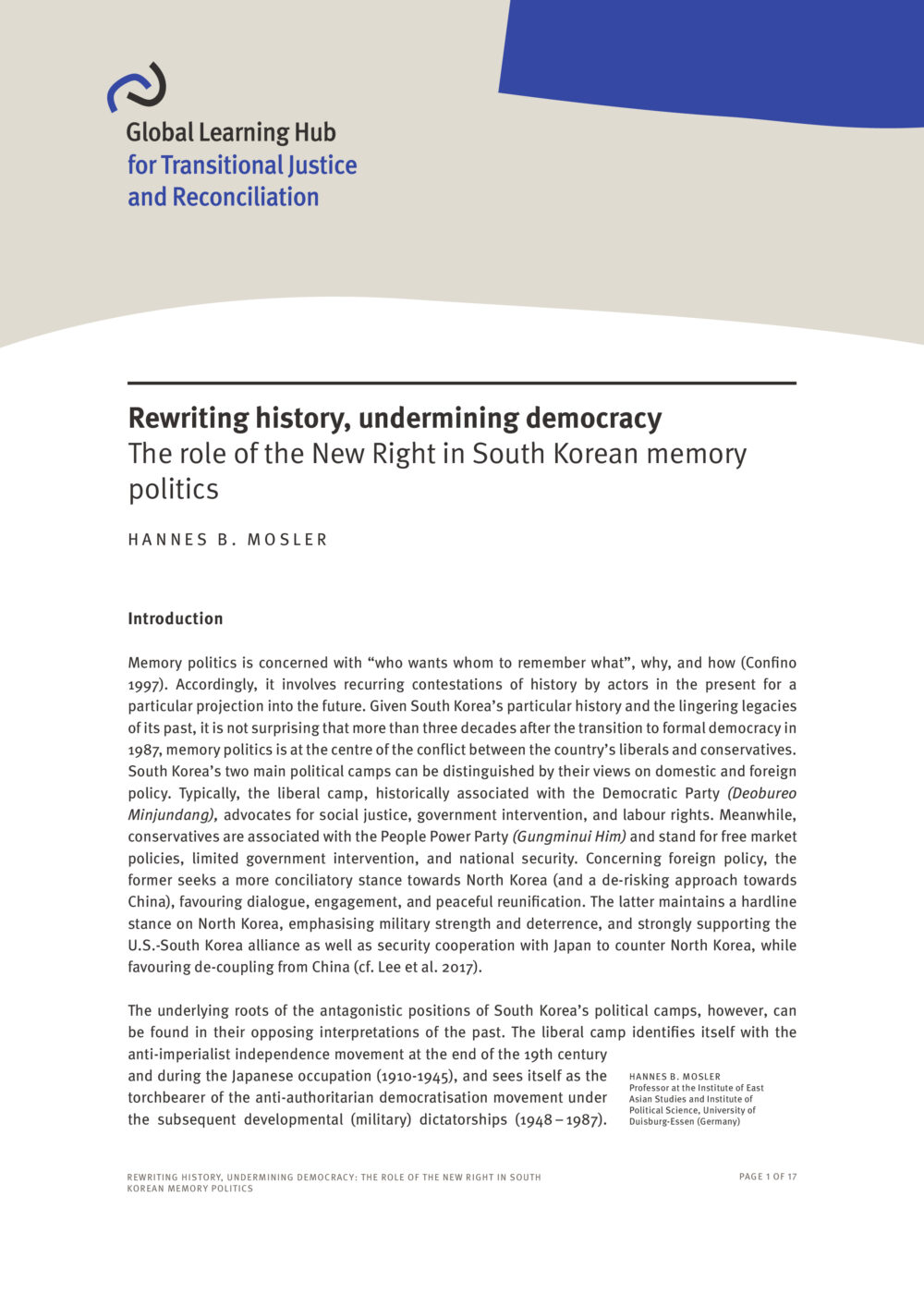
Rewriting history, undermining democracyThe role of the New Right in South Korean memory politics
This case study examines the evolution of the South Korean New Right over the past two decades in its revisionist assaults on mainstream historiography and the country’s consolidating transitional justice paradigm. Analysing the most salient areas of contention, the author finds that far-right memory politics in South Korea represents a calculated effort to distort national memory for political ends, posing serious risks to the country’s democratic integrity.
- Year2025
- Author(s)Hannes B. Mosler
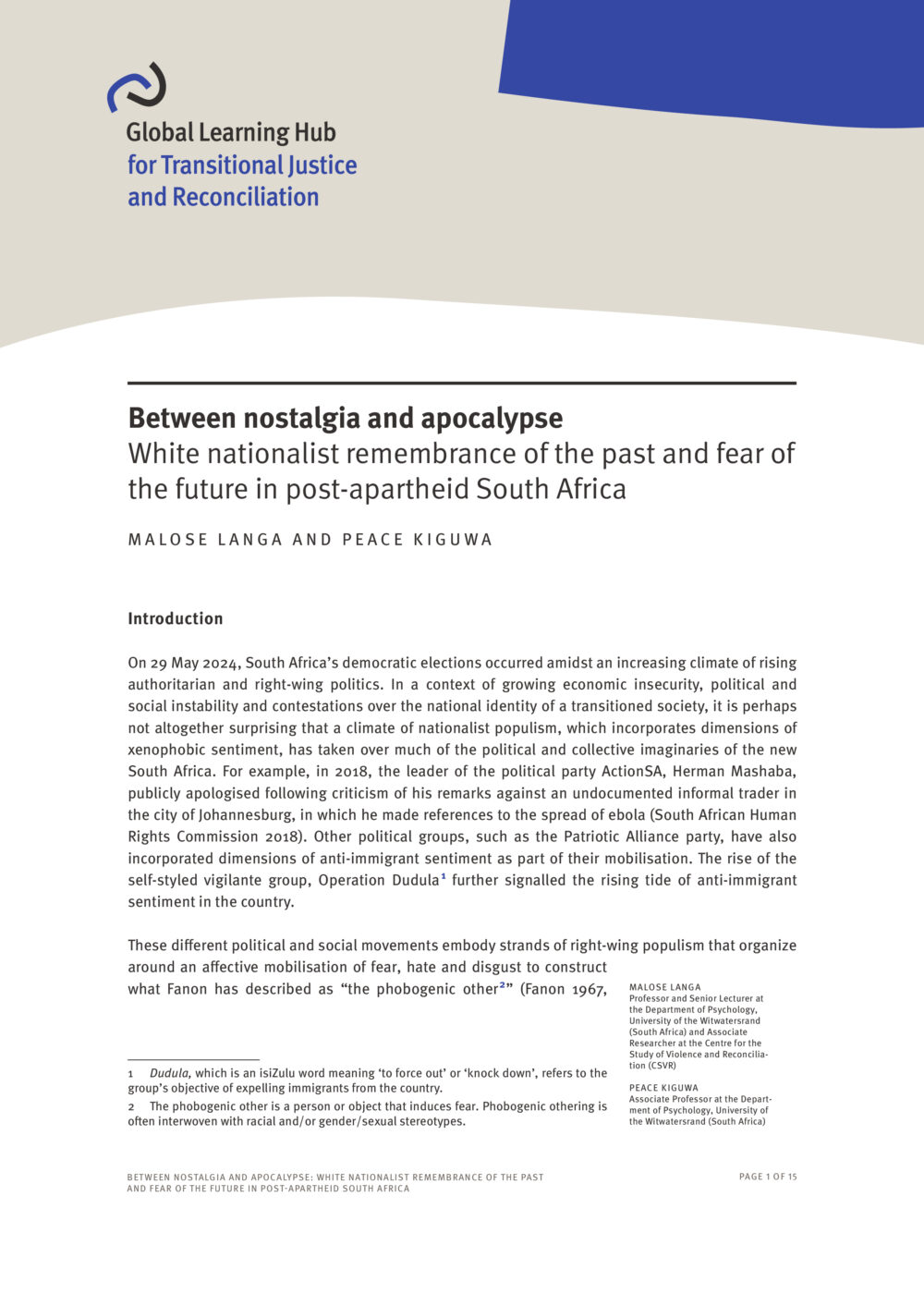
Between nostalgia and apocalypseWhite nationalist remembrance of the past and fear of the future in post-apartheid South Africa
This case study explores mobilisations framed around remembrance in white nationalist movements in post-apartheid South Africa, with a particular focus on the AfriForum. The authors draw on the concepts of restorative nostalgia and apocalyptic anticipation to analyse how the opposition to policies aimed at redressing past inequalities related to colonialism and apartheid often relies on racial stereotypes, fear, and, at times, hatred.
- Year2025
- Author(s)Malose Langa, Peace Kiguwa
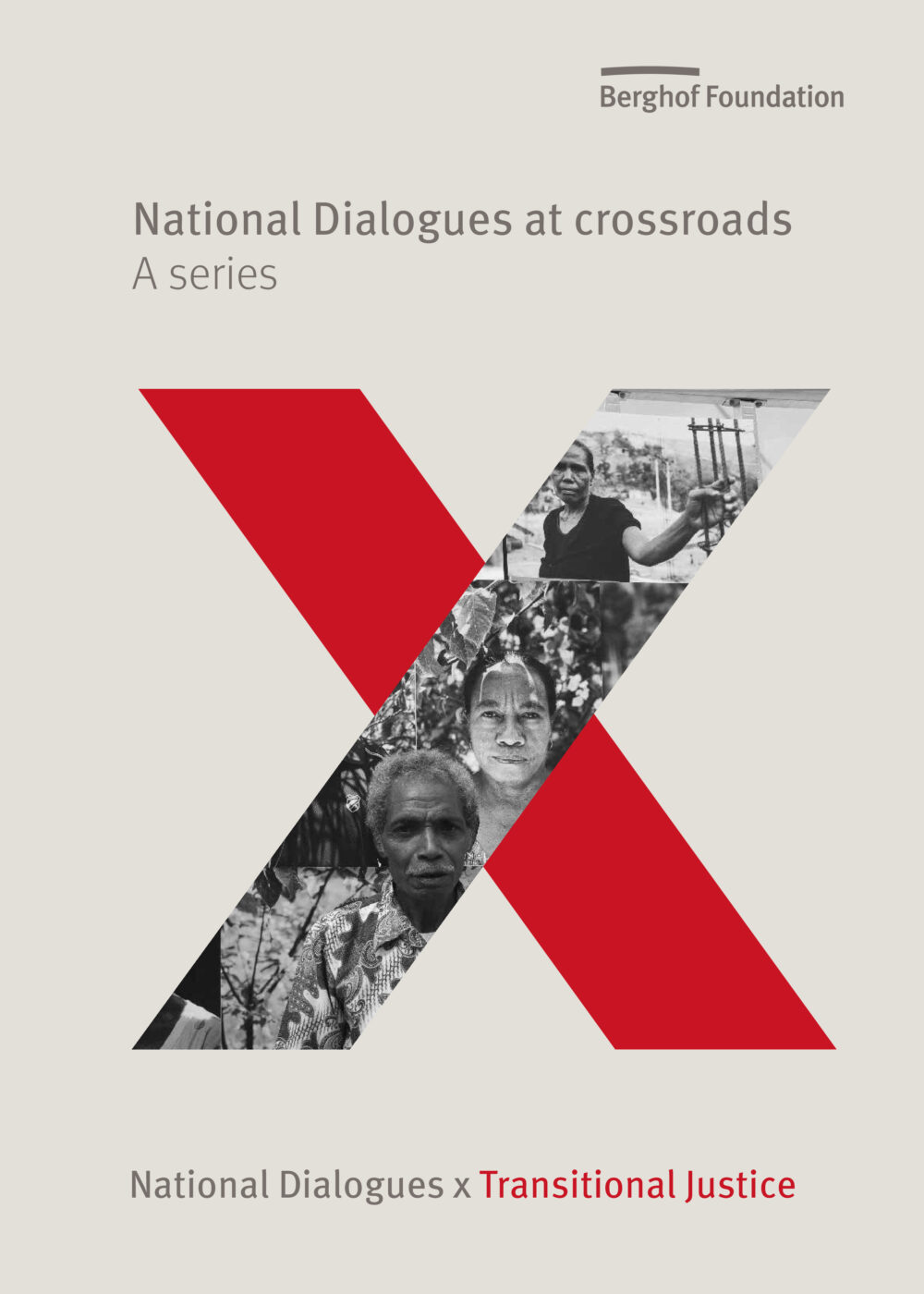
National Dialogues at crossroads: A seriesNational Dialogues x Transitional Justice
In the aftermath of conflict, National Dialogue and Transitional Justice can both contribute to reconciliation and prevent the recurrence of violence. But what is the nexus between the two? What are key shared characteristics, goals, and complementarities? In this paper, Sylvia Servaes and David Bloomfield explore the interlinkages between National Dialogues and Transitional Justice. They also discuss open questions on how both processes can be further integrated in practice to enhance their relevance and effectiveness.
- Year2025
- Author(s)Sylvia Servaes, David Bloomfield
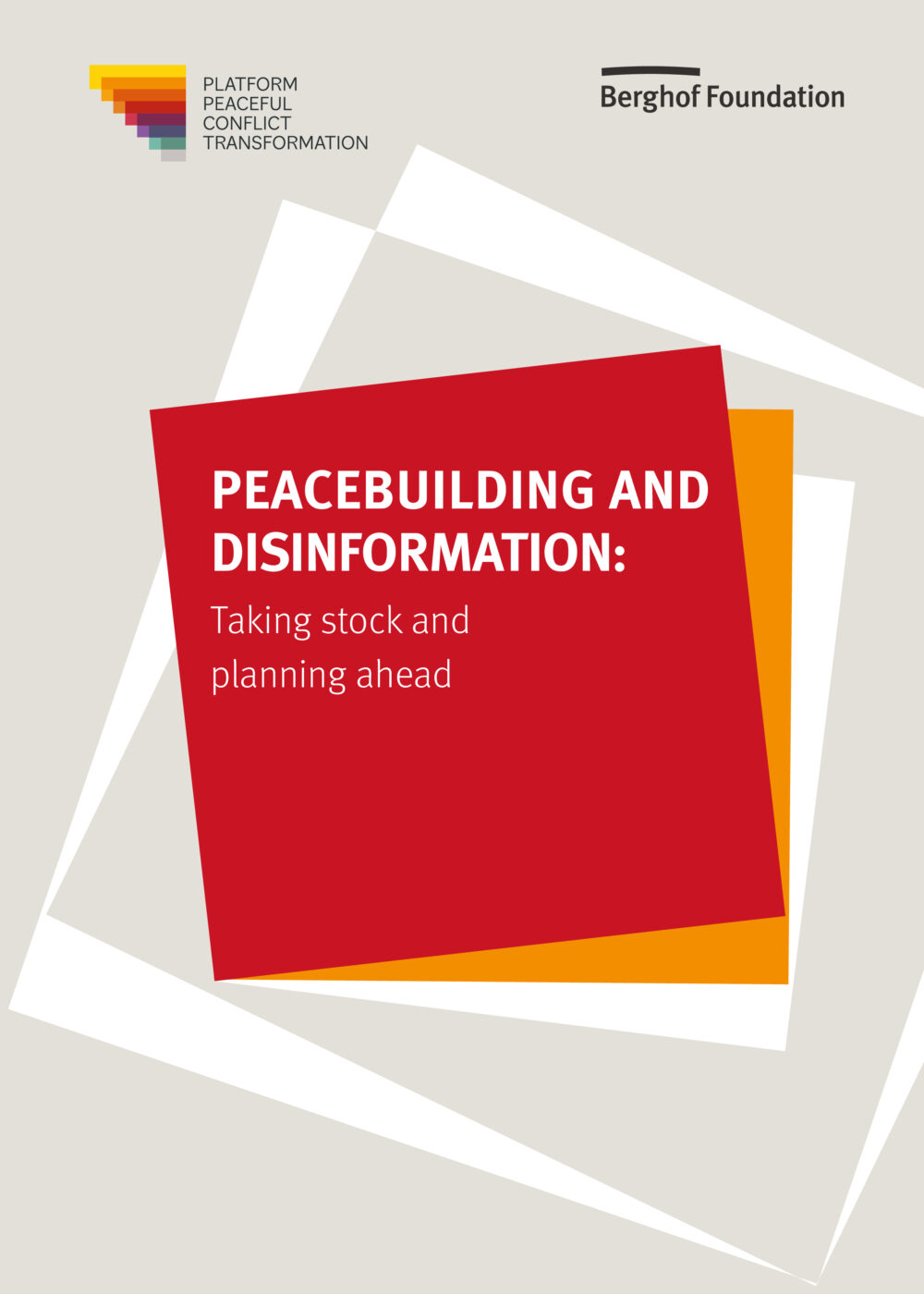
Peacebuilding and disinformationTaking stock and planning ahead
Disinformation is a global challenge that undermines trust within societies and, ultimately, peace. This study investigates how peacebuilders can help combat disinformation by using their expertise in conflict analysis, mediation, and dialogue. It also explores the role of technology in spreading disinformation and identifies opportunities for peacebuilders to intervene. The study emphasises the need for them to focus on addressing the root causes of both disinformation and conflict, rather than simply responding to their symptoms. It advocates for incorporating cognitive science into peacebuilding efforts and for adopting a more interdisciplinary approach to tackle these complex issues.
- Year2025
- Author(s)Grace Connors, Emma Baumhofer
